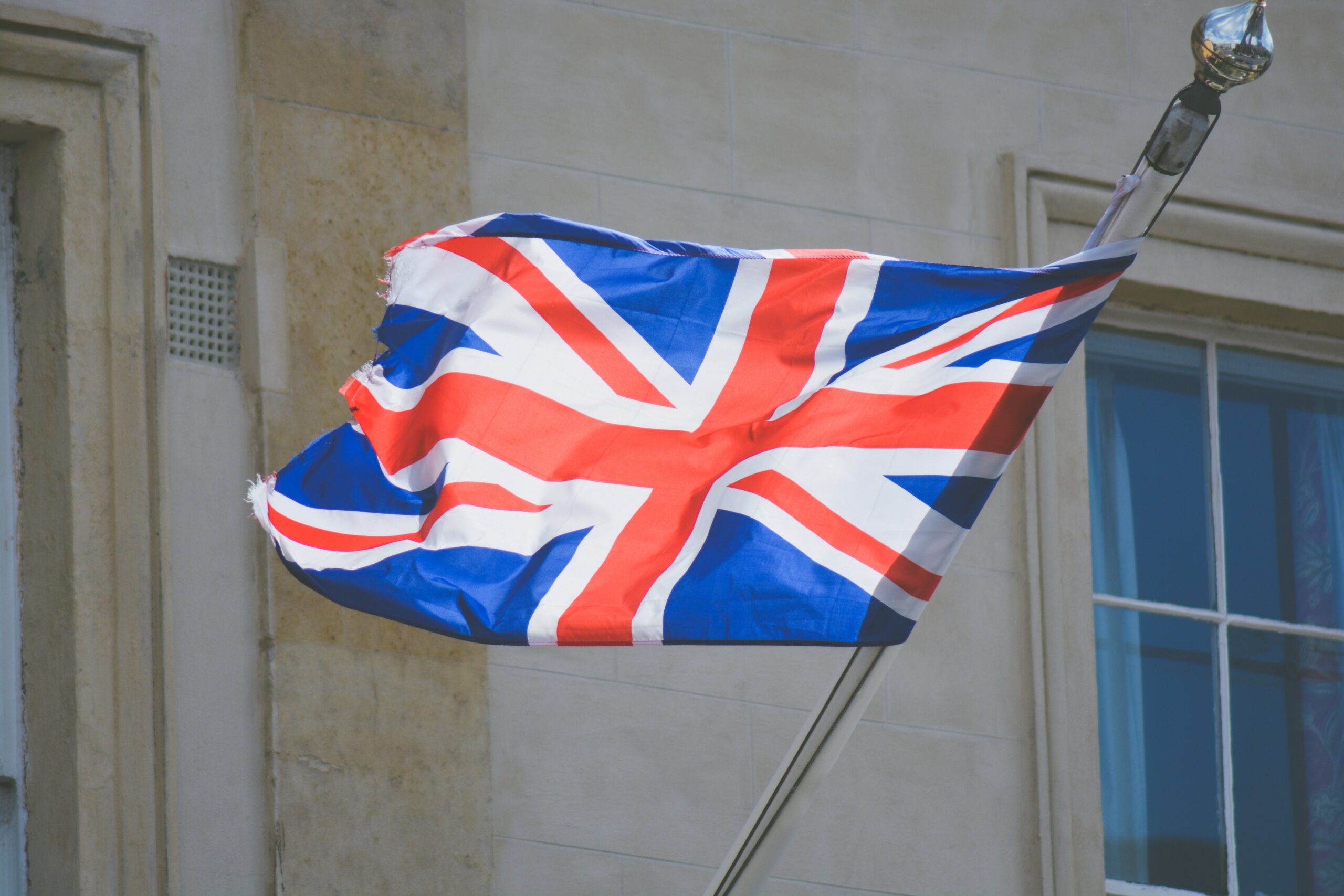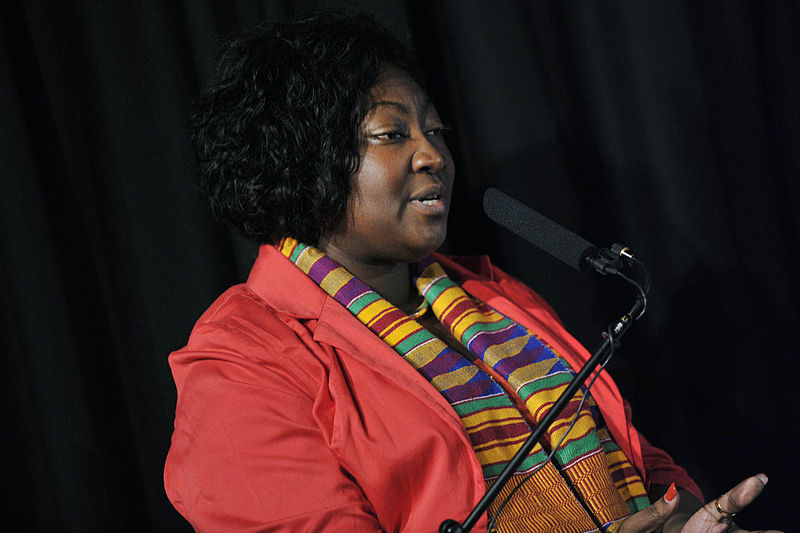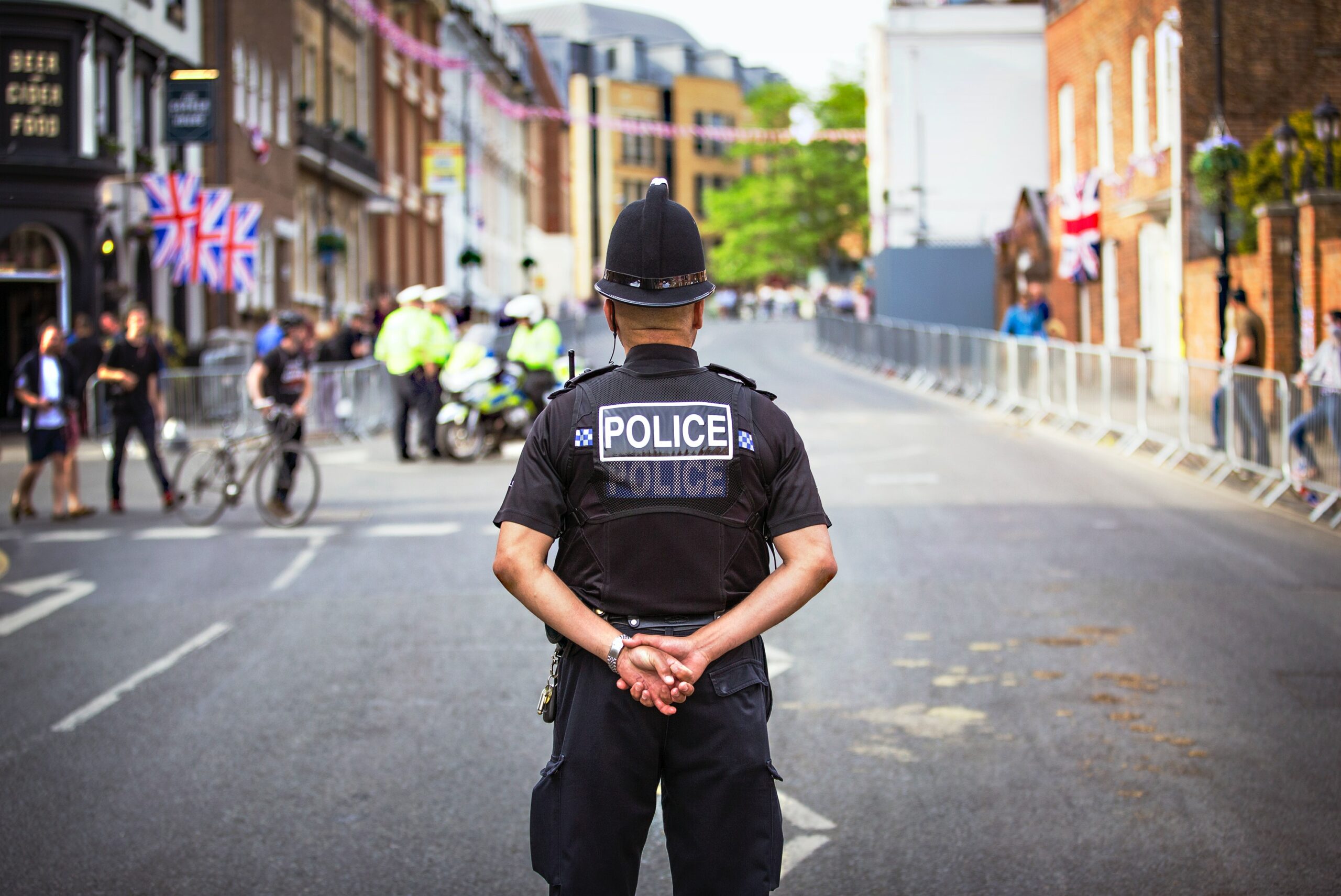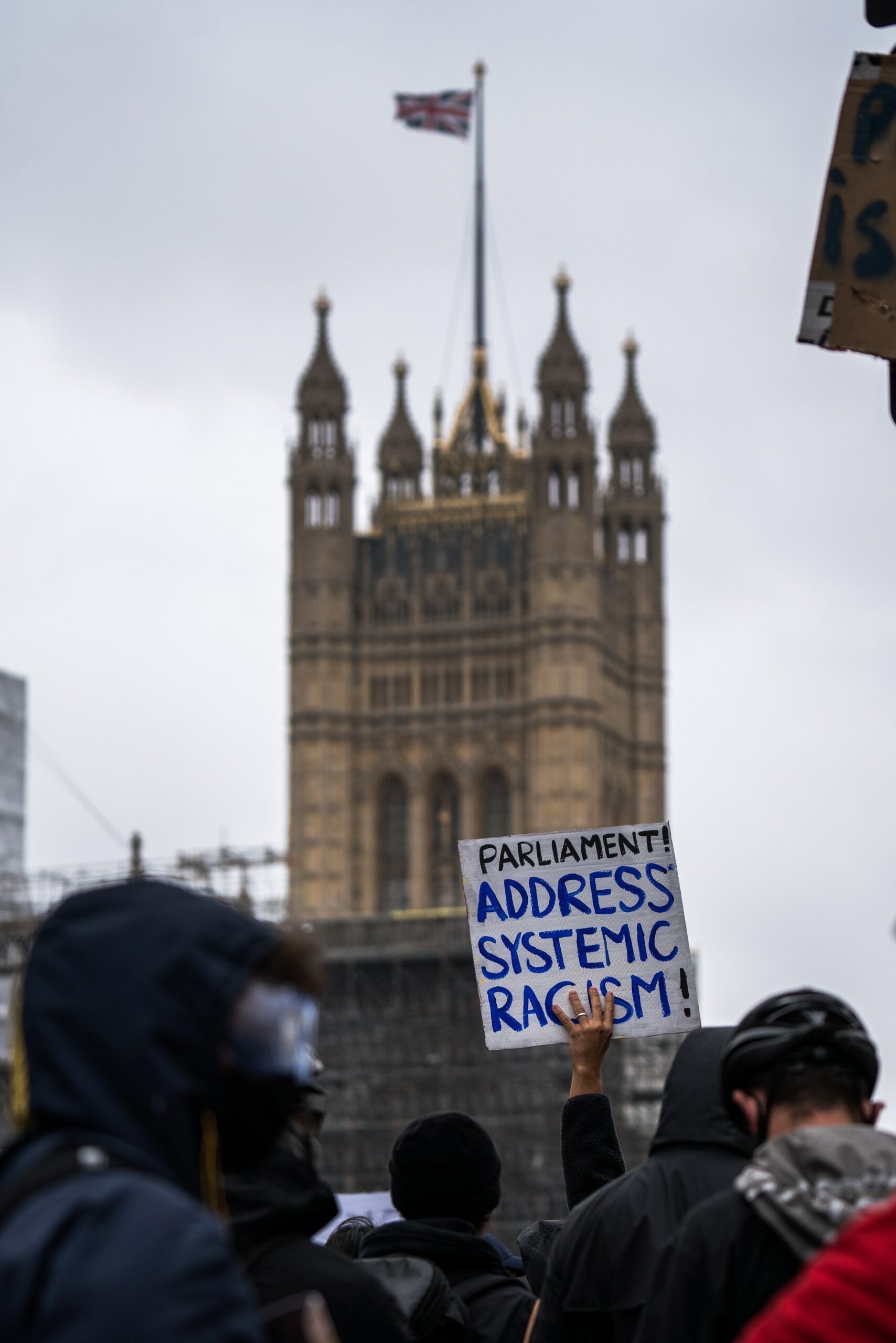The BBVP (Black British Voices Project), commenced in 2020. It’s the largest ever survey to be conducted with over 10,000 Black Britons from across the UK contributing. This research was a collaborative effort between the University of Cambridge’s Department of Sociology, The Voice Online, and I-Cubed.
Now, three years later, the results are in. Giving us a chance to truly understand what life is really like for Black people living in Britain.
And the survey says…
The survey results, released earlier this month (aptly timed for black history month) covers an array of subjects that affect black Britons from youth through to adulthood. Including education, health and religion. As well as cultural, societal and political issues in order to provide us with a full picture of their experience.
So let’s delve into the questions and digest the results…Although some of the answers may be a little hard to swallow.
First up, is do you consider yourself British? While this question may appear straightforward for white communities, ‘Britishness’ often presents a complex and challenging issue for many Black individuals. However the majority of Black Britons do consider themselves as Brits, with 81% feeling a definite or partial connection to the British identity. Whilst one in six do not identify with it at all. Interestingly, Britons are more inclined to embrace ‘Britishness’ as opposed to ‘Englishness.’ This is all due to various factors, including exclusion, colonialism, historically discriminatory immigration policies, etc.

BAME to Blame?
BAME is often thought of as an inclusive term. So, it may come as a surprise that, in many instances, it has had a more negative than positive impact on Black communities. According to the survey, BAME is largely seen as an ‘unhelpfully homogenizing’ way to categorize non-white individuals in Britain. Oversimplifying their diverse identities into a single label. BAME masks the specific challenges faced by one of its most important target groups – the Black community.
BAME is not just seen as a problem by BBVP respondents but as a symbol of how the issue of discrimination is defined. When Black individuals aren’t empowered to define their own identities, it raises significant questions about their sense of belonging and whether they are being authentically represented.
Although 21% of respondents did find the original intent of ‘BAME’ agreeable. They too, now believe the term is past its shelf life. Instead of being an indicator of equality it’s now a sign of failure and systemic racism.
LGBTQ + Black
Whilst its encouraging that just over half of respondents feel that acceptance has grown over the last decade. It seems being a part of two minority groups is still quite the challenge!
Many black LGBTQ+ are dealt a hand of combined discrimination. Being targeted for their race in gay communities and targeted for their sexual orientation in Black communities. Although they have some pretty amazing icons with the likes of Lady Phyll and Marsha P Johnson to look to, it can still be isolating.
That isolation is amplified when the exclusion comes from within your own community. And that’s exactly what’s happening for black LGBTQ+ Brits. A staggering 84% of respondents report that Black LGBTQ+ individuals still face discrimination within black communities.
So whilst homophobia/transphobia may be on the decline in the rest of Britain within the black community there’s still work to do. Why? Well presently, most black Britons see the church as a safe space that offers a sense of purpose and source of support. But what happens when places that are supposed to be welcoming start closing their doors to those who are already feeling left out? Black LGBTQ+ individuals don’t view churches favourably, believing that’s where the intolerance stems in the wider community. And with the vast majority of black Brits reporting, they are religious and/or spiritual that seems to be where the biggest hurdle to inclusion lies for the black LGBTQ+ community.
Race & Religion
Although not favourable for the LGBTQ+, religion and the church is a significant part of black life. Places of worship are often sought out in times of trouble for the black community. They act as a place of refuge when the wider society seems hostile. A whopping 82% of black people claim to be religious or spiritual. However, the majority of BBVP respondents emphasized that their racial identity carries more weight for them than their religious identity.
So, if being Black is a big part of who you are, what sort of challenges might you face because of that?
 Sarah Jeynes of http://sarahjeynes.com/ (according to EXIF metadata), CC BY 2.0
Sarah Jeynes of http://sarahjeynes.com/ (according to EXIF metadata), CC BY 2.0 Educate, Don’t Discriminate
90% of young black people expect to face racial bias at some point. Let’s let that sink in for a moment…
No child should grow up expecting to be racially abused or face prejudice based on the colour of their skin. It’s unsurprising then to learn that young respondents were 20 times more negative in their response to their future. And though they’ve grown up in Britain, many of them feel like they don’t quite belong, with 39% planning to leave in the future.
Change begins with education, after all education has the key to wiping out generational racism. However with many young black Brits feeling let down by the schooling system, it’s obvious there’s failings that need to be addressed. 94% of black students are believed to be under estimated by their educators when it comes to expected attainment.
Racial discrimination represents one of the most significant barriers to academic achievement among young Black students. Only 2% feel racial differences are taken seriously within the education system. That coupled with the lack of representation and insufficient teaching of black history and culture within the national curriculum fuels distrust in the system.
It’s not just the education system that lacks the trust of young black people, 93% do not feel supported by the Government either which is unsurprising seeing as education is largely regulated by them.

Working For Equality
The workplace is another arena where persistent racial disparities are evident. At every stage, whether it’s trying to get in, fitting into the workplace culture, or career advances challenges persist. With 88% of respondents reporting to have experienced racial discrimination in the workplace.
What may be more surprising though is the suppression experienced, we all adapt our personalities slightly to seem more professional or fit in a bit more with the workplace culture. However black workers experience this on a different level, 98% reported they had to compromise who they are to fit in at work. Meaning black workers feel compelled to change how they dress, talk, or style their hair just to fit in. In some cases, people even change their names to make it easier to pronounce for their white colleagues.
Surprisingly, even workshops intended to promote “EDI” (Equality, Diversity, and Inclusion) have been criticized as exclusionary. Whilst it’s important for a company to have a focus/agenda on EDI it’s also important to recognise that pointing out other’s differences and making a workshop around it may not be helpful. in fact, According to the survey most EDI efforts come across as superficial and can have harmful effects.
When it comes to career advancement for Black Britons, it doesn’t come easy and when it does its usually seen as tokenism. Although many black employees are thought to work harder to counteract this perception or to be noticed among their peers as worthy of promotion. Discrimination is still ranked as the biggest obstacle in career progression and workplace obstacles, even outdoing unequal pay.
Distrust in Justice
It’s been two decades since the Macpherson report. Yet black Britons still carry a legacy of distrust and tension with the police, courts, and the penal system. Racial profiling by law enforcement remains a major concern, perceived as inadequately addressed. Controversial stop and search laws continue to fuel friction between the police and Black communities. With 79% believing they are used unfairly on black people. Though opinions are divided, with some seeing inherent police bias and others believing that better policing can resolve the issue.
Despite challenges to institutional racism and discrimination within the criminal justice system by the Black Lives Matter movement and high-profile reports, racial challenges persist. The Black British population remains deeply troubled by police and the criminal justice system. With 87% not trusting them to be impartial. What we have witnessed from police across the pond, will have no doubt played a part in these responses. It’s all too easy to see why there’s distrust in authority. However, the survey results express a strong desire for a better relationship. One of fairness, equity and impartiality but the perception is that the police have not responded effectively to this.

Sprinting away from stereotyping
The media is another area of exclusion. While advertising and music industries have improved in portraying Black culture (77% found them better). Nearly all BBVP participants expressed concerns about the negative portrayal of Black individuals in British media. They are portrayed as either villains or victims rather than survivors. Black Britons yearn for more inclusive representation, but these sectors are often viewed as hostile and exploitative institutions, perpetuating negative stereotypes.
It’s not just stereotyping and tokenism on TV that concerns the BBVP respondents but the barriers into other areas such as theater and publication. With fewer than 10% believing enough is being done to encourage black people to participate in those sectors.
Sport and the media go hand in hand, so again it’s not surprising that stereotyping seeps in again. Black people are often overlooked in sports that are not associated with their race i.e basketball or athletics. Though their are plenty of black sporting legends outside of these areas, none that have not come into contact with racism. And it’s not getting any better, in fact 63% of respondents believe that racism in sports has increased in recent years. This could be down to social media, with 95% of respondents feeling that social media companies are not doing enough to prevent online racial abuse of Black athletes.
While football players are seen taking the knee, and raising awareness about racial issues might make it seem like sports is anti-racist, it’s a complex issue. The majority of BBVP respondents expressed the belief that initiatives aimed at addressing racism in sports are often seen as shallow and superficial. This perception trivializes and sidelines a problem that, in their view, deserves much more serious attention.
Mind the Gap
To attain improved financial security, it’s crucial to have financial literacy. According to the respondents, this is currently lacking within Black communities. Only 56% percent feel they have adequate financial knowledge. There is also a prevailing sense of fatalism concerning economic fairness among BBVP participants. 96% believe this stems from a generational wealth gap, in comparison with other races.
Although community support for Black-owned businesses is viewed positively. Business owners continue to face challenges when it comes to financial support. 3 out of 4 feel they are treated unfairly by investors and banks. Again feeling the need to suppress themselves to fit in, and gain the resources they need to make their businesses successful.

No Hope for Healthcare
Black Britons hold low expectations when it comes to healthcare. With 87% expecting to receive sub-standard care due to their race. These perceptions contribute to poorer health outcomes in their communities. Surprisingly, only 1 in 60 respondents felt fairly treated within the healthcare system. Many participants noted that various factors significantly impact health. They highlighted the effects of social inequalities, such as poverty, unemployment, inadequate housing, and poor nutrition. Additionally, they stressed how everyday racial discrimination amplifies overall stress on black people’s health.
Conversations about mental health can be challenging for many Black Britons, both at home and in public. A substantial 68% of study participants disclosed that they or their family members had faced mental health struggles. Daily encounters with racism take an emotional toll, leading to psychological trauma and mental stress. An overwhelming 81% of participants believed that mental health support for Black people in Britain falls short. The perception that mental illness among Black Britons is often misdiagnosed, over-medicated, or disregarded adds to the stigma and stress.
Additionally, 72% of survey participants hold the view that Black individuals with disabilities encounter distinct treatment compared to those without disabilities. This theme persists in highlighting the inadequacy of addressing the needs of Black individuals with disabilities. The disregard for the requirements of Black individuals with disabilities is interconnected with the larger issue of neglecting disability-related concerns. Disability is a significant concern in Black communities, requiring greater recognition, support, and understanding.
Pessimistic Politics
Ninety-four percent of BBVP participants believe the UK government isn’t doing enough for the Black British. From what we’ve discovered so far, I’m frankly surprised that number’s not higher. Nonetheless the interest from BBVP participants is high. 3 out of 4 described themselves as interested in politics. And why wouldn’t they be? When the government are in essence the hub for all institutions and have the power to stamp out institutional racism.
Would more representation in the House Of Commons help? Maybe not, according to the results only 20% believe that black politicians can make effective changes. And those that do, want them to reduce spending on race reports. As those are seen as largely unrepresentative of their experiences.
With the effects of the Windrush scandal still being felt, and the failures in addressing systemic racism its clear to see where the pessimism for UK politics comes from. And with 93% of young black people feeling unsupported by the government, it doesn’t look hopeful for future generations either.

Change matters
After digesting the results, I’m pretty sure you’ll have come to your own conclusions about what needs to be addressed. So the real question is, if it’s so easily identifiable what the issues are and with so many possibilities for action, why hasn’t any substantial change occurred already?…
Tolerance. We tolerate racism and ingrained injustices in the society we live in. Although racism is a violation of dignity and fairness, there is also a sense that is somehow OK. That it’s to be expected, normal or even acceptable. It makes it even more alienating to those who experience it every day. BBVP showed how racism is deeply rooted in every part of black life, and it begs the question… why do we keep accepting it?
Because we see it, hear it, read it, but don’t absorb it. So, the key is to consistently ask tough questions and thoroughly explore every facet of Black life. Rather than sidestepping or merely tolerating the issues, we should seek authentic, tailored long-term solutions instead of superficial diversity measures that lack real impact.
The Black British Voices Project (BBVP) isn’t just another report. They are sparking a national conversation on wiping out deep-seated anti-Black racism in the UK. It stresses the need for hard facts and, most importantly, putting Black British voices front and center. It’s not just about gathering these voices; it’s about sharing them widely. Having real, honest conversations; bringing pressing issues that might otherwise go unnoticed to the surface. As a pioneering project, the BBVP offers a unique opportunity for all of us to unite and amplify Black voices to incite change. Yes, actions may speak louder than words, but if no one can hear the call to action in the first place how can we expect to see it?
